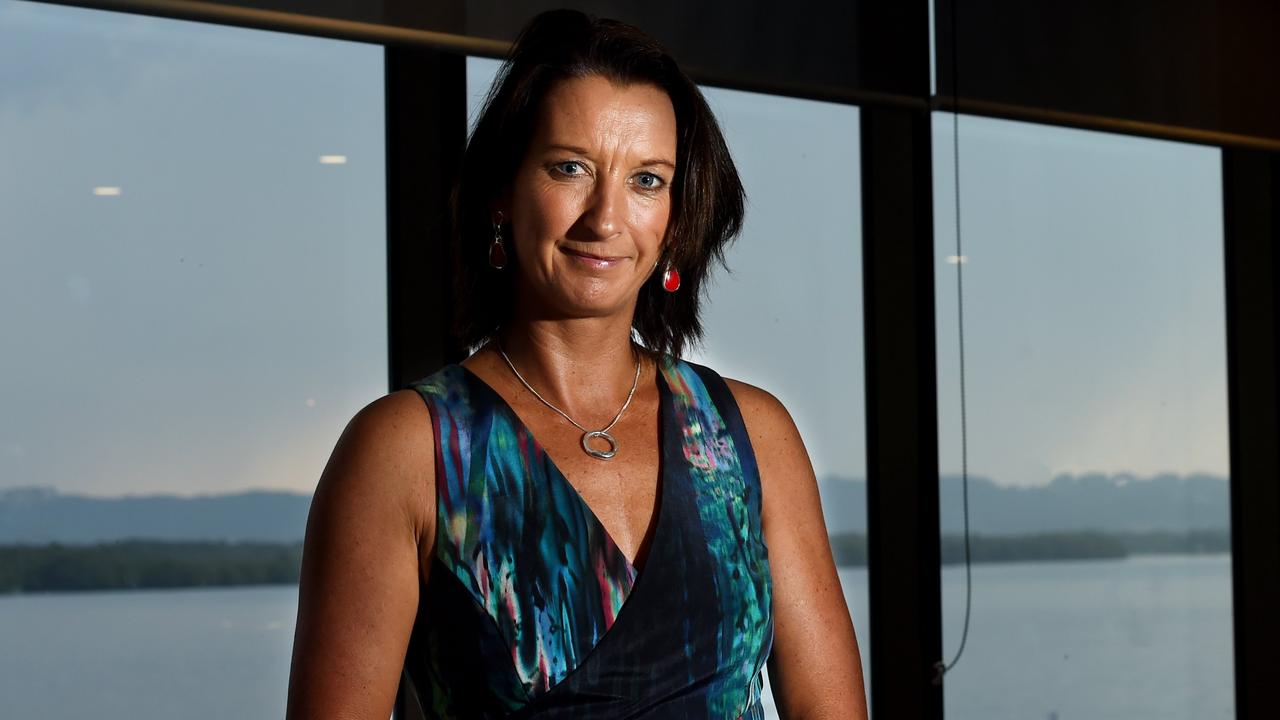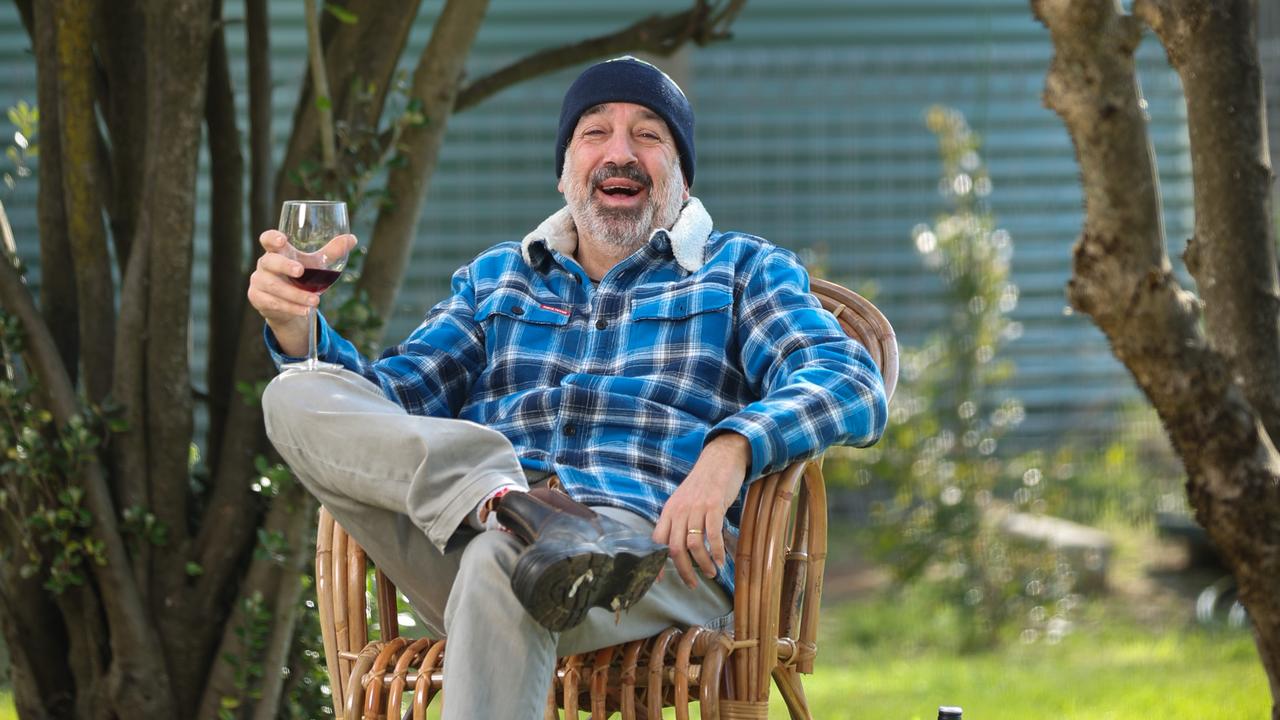‘A real wakeup call’: First female commando reveals near-death experience
Australia’s first female Green Beret Robyn Fellowes shares her struggles beyond the battlefield and successes helping vulnerable women.
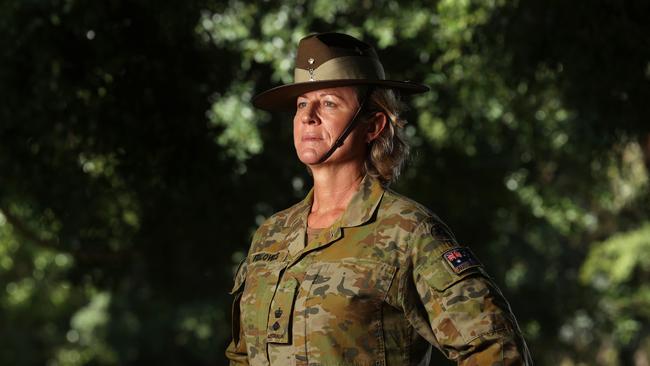
VWeekend
Don't miss out on the headlines from VWeekend. Followed categories will be added to My News.
Locals call it the “death tree”.
The towering grey gum, near a hilltop in a small Darling Downs town, has claimed too many lives.
Australia’s first female Green Beret Commando – a woman whose physical and mental toughness defies belief – almost became one of them. But in a split-second decision, Robyn Fellowes saved her own life.
Suicide had never entered her head, but on that late and lonely night driving home, Fellowes just wanted the pain to stop.
She floored the accelerator of her Ford Captiva, high-beam headlights illuminating the massive trunk before her, and then, almost as quickly as those dark thoughts came, they left.
Fellowes swerved the car back on to the road, and drove home.
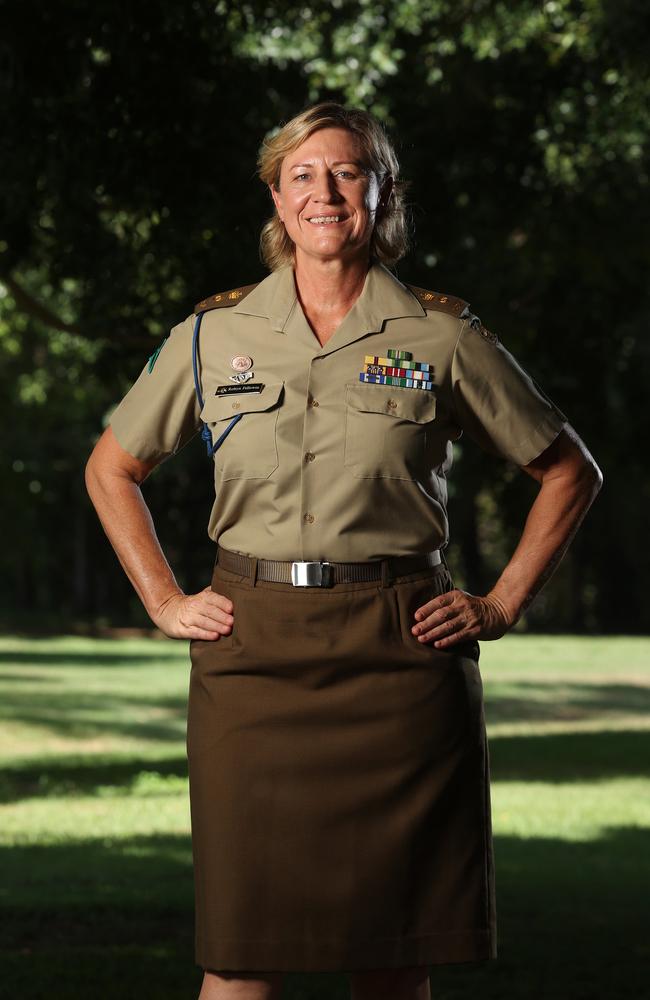
It is from that home – on 18.6 idyllic hectares she shares with pretty-faced wallabies and deer in Ravensbourne, north of Toowoomba – that Fellowes recounts her “tree epiphany” of 2009.
“I didn’t realise leaving the army would have such a big impact on me; there was an enormous feeling of disconnectedness and loss,” the 54 year old says.
“I was stressed, had daily chronic pain in my knees and ankle from decades of military training and that moment, that night, was the signal to me that something had to change; it was a real wakeup call.”
Fellowes, who describes herself as “always positive, not suicidal”, took stock. “I asked for help – because I knew I needed it – and sought pain relief through physiotherapy,” she says.
When Fellowes retired from full-time military service after a post in Iraq in 2008 – “I was at the top of my game and always maintained I’d retire when I was still enjoying myself” – she started a personal training business and transitioned to the army reserve.
But she always felt there was more to do, particularly in Afghanistan where women and children were desperately vulnerable.
Seven years later, she was thrilled to get a call from the army asking her to deploy there again, and later to South Sudan. And she’s not hanging up her boots yet, initiating a part-time peace role working with women in the Special Forces in the South West Pacific.
But 2023 is a special year for another reason.
“I’m calling this my best year of health ever,” Fellowes says.
“I’m challenging myself to stay focused for the year and be the best version I can of myself, mentally and physically.”
Giving herself permission for dedicated self-care after decades of service to others stems from writing her memoir.

Wings of Change: The Inside Story of Australia’s first female Green Beret Commando and her Fight for Change was self-published in December 2022 and quickly attracted acclaim.
Readers have described it on Amazon as “an honest account of an extremely humble lady … a shining light of what a strong but gentle woman can be”, and “an amazing story of endurance, determination and passion”.
It is indeed all that.
Fellowes writes of surviving a childhood marred by violence, rising to the rank of lieutenant colonel, and devising groundbreaking strategies to empower abused women and children in war zones.
She argues for greater female representation in Australia’s armed forces, bitterly disappointed that it took until 2014, through the nation’s first female prime minister, Julia Gillard, to open all combat roles to women.
And she demonstrates, with no uncertainty, that the mind is more powerful than the body. If you can limp 30km with a badly sprained ankle, while battling hunger and sleep deprivation – and carrying an injured man – you can pretty much conquer anything.
“I had a point to prove,” says Fellowes of the gruelling 1998 selection course for the coveted Green Beret.
When her younger male counterparts dropped out, Fellowes, disadvantaged after spraining her right ankle during a run two days before the course, kept going.
“I knew commandos were amphibious raiding units which operate against strategic targets, normally using covert entry to achieve surprise,” she says.
“The army did not have any women who had qualified to wear a Special Forces’ beret … it was time for this to change.”
Fellowes, who excelled at heptathlons while at Toowoomba State High School and joined the army at 17 after a family friend said she could get paid for doing athletics, became widely known as Amazon Woman and GI Jane. “I’ve never really considered myself to be these things; other terms resonate more – role model, mentor, friend, sister and aunty,” she says.
“People told me to write a book because I’ve had a unique career, but Mum was the real reason it grew into a memoir.

“I pitched it to a publisher early on and they said, ‘Only famous people will make money out of a memoir and you’re not famous.’
“But for me, the messages of overcoming adversity, helping others and driving positive change were just too important.”
In 2022 Fellowes parked her army work and gave herself a “gap year”. “When I was working, I couldn’t write. I tried but was getting nowhere.
“At the end of a busy day, I had no mental capacity to be creative so I said, ‘If I’m going to get this book written, I have to stop work.’ It meant that much to me.”
The third youngest of four girls, Fellowes grew up watching her stoic German mother Helene Klieber suffer.
Her father Michael Fellowes, who initially charmed his bride with his English good looks, turned into a domineering brute after they immigrated to Australia in 1964 and later established a 35.6ha farm in Highfields, near Toowoomba.
“Dad blamed Mum for everything and anything that went wrong,” Fellowes writes.
“If a cow died calving or a piglet got squashed by its mother – or he did not have any money – it was all Mum’s fault.
“Mum would be yelled at and then bashed up.
“I often pleaded with her to take us somewhere safe, away from Dad. Mum simply said, ‘If I take you away, he will find us and kill me.’”
Fellowes and her sisters were not immune to the violence.
“Dad would get angry, grab us by the hair and bang our heads together,” she writes.
“After school one day I found that Mum had crawled into the sanctuary of my bed, bloodied and bruised. She told me, ‘I am OK. Please go and put Dad in a good mood.’ And that is what we did.”
But peace was short-lived. Fellowes describes how the children’s bedroom windows “regularly became a human waterfall and we piled out to escape the violence”.
“We would run as fast as we could up the paddock until we could no longer hear Mum’s screams of pain.”

To this day, Fellowes cannot understand why her mother stayed.
“My sisters (Karen, a retired army warrant officer in Mission Beach, Tracy, a nurse in Ravensbourne, and Julia, a psychologist in Yeppoon) and I have discussed it.
“We’ll never know – but she protected us, she took the poundings. I really don’t know how she survived.”
After Michael Fellowes died aged 75 in 2014, his long-suffering wife finally found peace – if only for the last two years of her life.
For all its trauma and fear, Robyn Fellowes’ childhood has produced many positive outcomes.
“Our past makes us who we are but it does not define us,” she says.
“I’m not a violent person like my father, but I do crave peace. I learned that I needed to help people who couldn’t help themselves, and my mum was a primary example of someone I couldn’t help.
“During my 36 years in the military, starting in Bougainville, I realised the importance of talking to the local women and providing a hand up.”
In 2015 when Fellowes was heading the assessment team for the NATO-led Resolute Support headquarters in Afghanistan, she met the since-retired Australian Army Colonel Amanda Fielding, the operation’s gender adviser. As Fielding writes in the foreword to Fellowes’ book, “Not only was Robyn warm and very, very funny, she had a genuine passion for others and in the case of Afghanistan, a genuine concern and desire to assist the women in the country to secure a better future for themselves.”
Impressed by this “legendary female Green Beret” who was “incredibly human as well as an incredible human being”, Fielding asked Fellowes to assist with workshops with women in the Afghan National Army.

From there, Fellowes was invited to help set up the gender adviser capability for the Australian Defence Force in Canberra. “We look at our missions through a gender lens to ensure our operations don’t impact negatively on the local population,” she explains.
“We know that women and children, and the elderly and disabled, are disproportionately affected by conflict.
“I’ve seen the best and the worst of humanity, and have been fortunate to assist the vulnerable.”
In 2017, Fellowes was sent to Africa as a peacekeeper in the UN Mission in South Sudan.
The mission was established to support the new Republic of South Sudan as it recovered from 20 years of civil war between the Central Sudanese government and the Sudan People’s Liberation Army (SPLA).
“I knew from our previous peace process meetings that if we engaged with the women, we would likely get a very different story to what the men were telling us,” Fellowes says.
“In Bougainville in ’98 the leaders and the chief were saying, ‘Everything is fine’, but the women were saying, ‘No, it’s the opposite; we’re being raped, our daughters are being raped, we have no freedom of movement, there are violent gangs.’”
Fellowes undertook a “gender analysis” in South Sudan and determined there was significant conflict-related sexual violence against civilians, 97 per cent of them women and children.
“The primary perpetrators were the security forces, the military and the police, so my plan was to work with the women in the SPLA to train and empower them and to increase women’s participation.”
To her dismay, Fellowes learned she was the only gender-trained and tasked staff officer in the headquarters of almost 14,000 military peacekeepers.
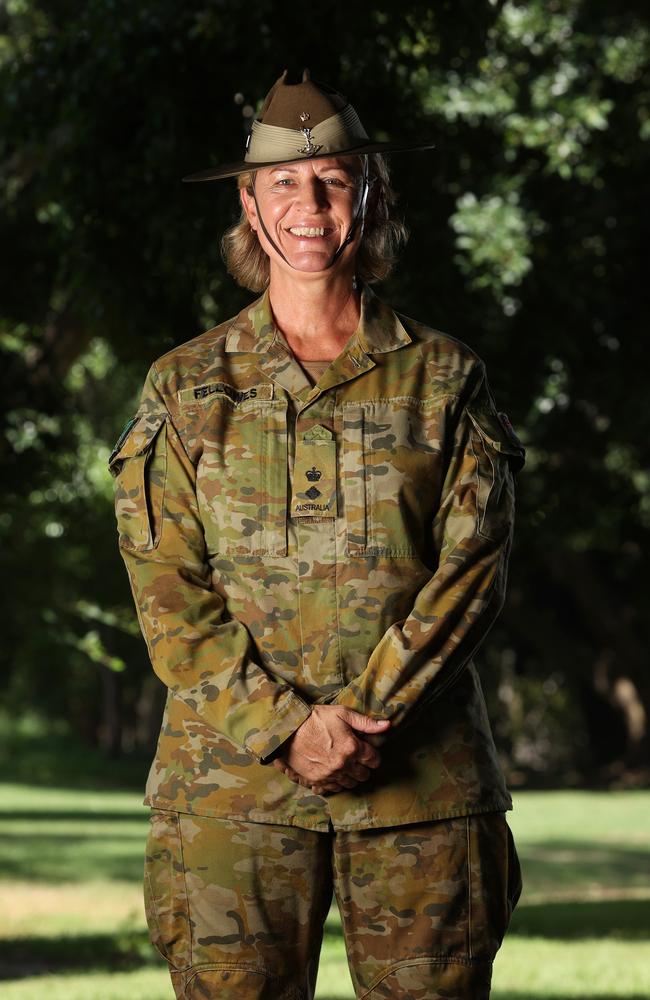
Undeterred, she began engaging with the few female SPLA members to raise awareness of their rights and responsibilities.
She designed a course to address gender-based violence and was instrumental in bringing surgeons from Africa to operate on young women and girls with the horrific childbirth injury of obstetric fistula.
At the conclusion of her nine-month post, Fellowes wrote detailed handover notes to her successor, confident she had “invested everything I had to give”. “I have made sure I focused on making sustainable change and it is now up to these women to be their own agents of change.”
Her many deployments around the world, both during and post conflict, have reinforced to Fellowes something she learned very early in life: women are pivotal to the peace process.
“My sisters and I were peacekeepers as kids, to try to stop Dad using Mum as his official punching bag, and she stayed to protect us from him,” she says.
“Women think differently to men. But I honestly believe our strengths are our differences.
“Only two women qualified for their Green Beret after I did. I would have expected many more, particularly after (then) prime minister Julia Gillard opened all combat roles to women in 2014, but it didn’t happen and I don’t know why.
“We have so many smart, capable and competent women who could do these commando roles.
“When you bring in women trained the same as the guys, you bring in a completely different capability so therefore you’re enhancing the capability you have, particularly when you’re conducting special operations in remote areas and engaging with the entire population.”
Fellowes, who has also served in East Timor, laments that Australia is not where it should be – a world leader in female participation in the Special Forces.

“I have never come across the negative culture that I’ve read about, but what I experienced was a lack of visionary leadership,” she says.
“We had the opportunity when I passed the commando selection course in 1998 to open all combat-related roles to women, and we didn’t.
“I was gutted when the Commander of Special Forces then shut the door to women – why would you not want to tap half of your population?
“We had to wait 15 years – what a waste of time, talent and capability.”
As Fellowes dedicates 2023 to her optimal health, working with medical specialists “to delay the inevitable” replacement of her severely osteoarthritic knees and a right ankle fusion, she is still chasing personal peace.
“I know I will always feel restless when there is ongoing injustice for women in conflict zones around the world,” she writes in her memoir.
“My future is still full of possibilities … but I want a life that brings me peace.
“I look out at the trees around my house and reflect how trees have protected and affected me. Climbing trees to escape domestic violence as a child – contemplating ending my life at the ‘death tree’ – and sitting under a tree in South Sudan after an exhausting tour of duty and reflecting on the importance of women’s influence.
“Trees always fill me with peace. I know I am not feeling peace in every moment of every day, but I am on that spiritual journey.”
More Coverage
Originally published as ‘A real wakeup call’: First female commando reveals near-death experience




